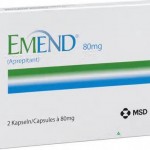While patients have many different fears about having surgery, one of the most common is postop nausea and vomiting afterwards. (PONV) While this is a concern regardless of the type of surgery, it is of paramount importance in cosmetic surgery because it is completely elective. For some this concern may even make them think more than twice about having surgery at all.
The patients that are at greatest risk of nausea and vomiting after plastic surgery are those patients that have a prior history of it. Also the risks are increased in those patients that are having longer operations, such as a facelift or Mommy Makeover for example. While anesthesiologists use a much more aggressive anti-emetic approach today, including the use of perioperative IV medications such as phenergan, zofran and steroids, it is not fool proof. Some patients will still have breakthrough PONV. Besides its uncomfortability, episodes of PONV cause elevated blood pressure which can induce bleeding and even hematoma formation.

The only downside to the use of Emend is its relatively high cost, of around $50 per pill. But to those patients who have had PONV before, this is no doubt they would say it is well worth it.
Dr. Barry Eppley
Indianapolis, Indiana


